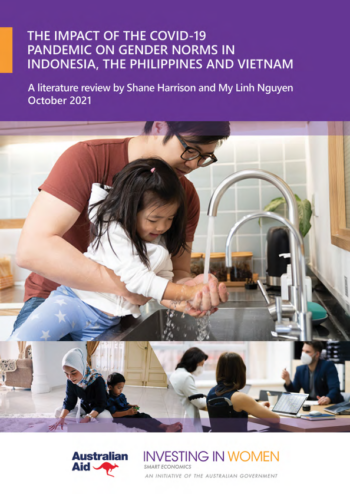The impact of the COVID-19 pandemic on gender norms in Indonesia, the Philippines, and Vietnam
Summary
This report delves into the significant impacts of the COVID-19 pandemic on gender norms and the economic roles of women in Indonesia, the Philippines, and Vietnam. It presents a detailed analysis of how the pandemic has affected women’s employment, increased their unpaid care responsibilities, and escalated gender-based violence within these regions. The findings reveal that women have disproportionately faced job losses, particularly in sectors heavily staffed by female workers. Additionally, lockdown measures and school closures have significantly increased the burden of unpaid care work on women, exacerbating their economic and psychological stress. The report also highlights an increase in incidents of domestic violence, driven by heightened household tensions and economic instability. Critically, it notes that the crisis presented opportunities to positively transform gender norms, yet there were minimal initiatives aimed at leveraging these changes, pointing to a crucial gap in policy and community response.
Highlights
- Women in Indonesia, the Philippines, and Vietnam experienced higher job losses during the pandemic, especially in sectors traditionally dominated by female employment.
- The pandemic increased unpaid care responsibilities for women significantly, as lockdown measures and school closures extended their roles in home management.
- There was a notable increase in domestic violence, linked to increased household tensions and economic pressures exacerbated by the pandemic.
- Despite the potential for transformative change in gender norms during the crisis, there were minimal targeted initiatives to leverage this opportunity, highlighting a missed chance for advancing gender equality.


